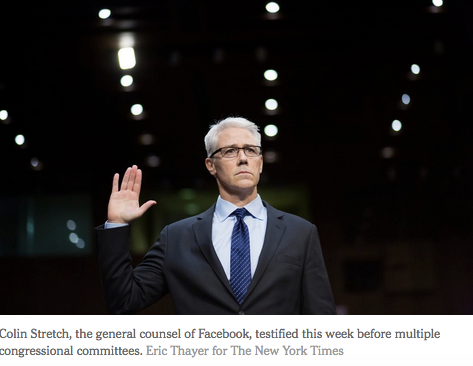WASHINGTON — Executives of Facebook, Twitter and Google pledged to Congress this week to do more to prevent the fakery that has polluted their sites. “We understand that the people you represent expect authentic experiences when they come to our platform,” Colin Stretch, the general counsel of Facebook, told the Senate Intelligence Committee. He said the company was doubling its review staff to 20,000 and using artificial intelligence to find more “bad actors.”
Mr. Stretch, meet Keven S. Eversley. Mr. Eversley’s Facebook profile informs us that he is from Minneapolis. But a glance at the web address for his profile reveals a different name: Aleksandar Teovski. And nearly all of his Facebook friends, his family photographs, his alma mater and even his employer are in Macedonia, a center for internet fakery.
Despite months of talk about the problem of fraud facing Facebook and other tech companies, and vows to root it out, their sites remain infected by obvious counterfeits. The Russian influence operation during the 2016 election, which occasioned the three congressional hearings this week, is only one especially consequential sample of a far larger problem, in which the platforms are gamed for profit or political influence.




